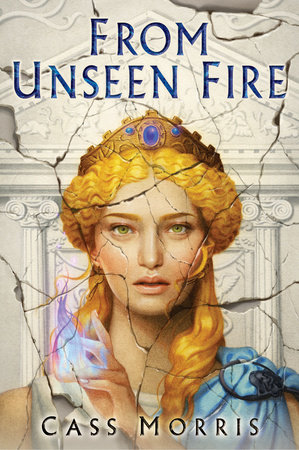Please welcome Tara Gilboy, author of the Middle Grade adventures, Unwritten and Rewritten.
Deborah J. Ross: Tell us a little about yourself. How did you come to be a
writer?
Tara Gilboy: I am, first and foremost, a
reader. Books and stories have always been one of the most important things in
my life, and I’ve wanted to write pretty much since I learned to read. I still
have some of the stories I wrote in elementary school. My mom recently gave me
a letter I wrote to a publisher when I was in third grade, asking if I could
write books for their series. (Apparently she never mailed it!) Unfortunately,
until I was in my twenties, I had never actually met a writer, and so writing
started to seem like this kind of “impossible dream.” Then in college, I took
some creative writing classes, published a couple short stories, and worked as
an editor at a literary journal, and I realized: “Hey, I can really do this!” I
completed my MFA in creative writing at the University of British Columbia,
which ended up being very humbling and also one of the most formative
experiences of my writing life.
DJR: What led you to write MG and how is it different from YA or
adult fantasy?
TG: Even though I have always loved children’s books and read tons
of middle grade (and actually my first ventures into writing were always in
middle grade, which is what I wrote for fun), when I was in college and started
seriously pursuing writing, I focused on adult fiction. I am embarrassed to
admit that I was a bit of a literary snob, and I had these really pretentious
ideas about writing. My sense of story was virtually nonexistent, I sneered at
plot, and I was writing a lot of “purple prose,” these kind of overwritten
sentences, way too much description and exposition. But a lot of my stories
left me feeling cold. I wasn’t in love with the stories and characters. I
remember in my first year of my MFA at UBC, I was taking a novel-writing
workshop and working on an adult novel that was this really serious historical
piece about a marriage and a woman finding herself within her marriage. I was
really struggling with it and couldn’t wait for the workshop to be over so I
never had to look at the novel again. At the same time, I was taking a class on
writing children’s books and reading all these amazing middle grade novels and
having wonderful class discussions about them, and I realized that I was
happiest when I was writing these kinds of stories. At the end of the first
year, I changed my thesis genre and never looked back.
I think middle grade differs from adult fantasy (and to some
extent, YA), in that it is really condensed into its essential elements – there
is no room to digress or go off on tangents or you risk losing your reader.
Middle grade readers have great eyes for what actually needs to be there in the
text, and when I am writing middle grade, I am ruthless about cutting. I am
also very careful about structure and pacing when I am revising. I want to keep
the reader turning pages without making things feel too rushed. The focus is
always on telling a good story, which is what I love so much about these books.
I also think middle grade tends to look inward, where characters really make
sense of their own identities, who they are, whereas in YA, the books tend to
look outward, with the main characters finding their place in the world, which
makes sense, since YA readers are often on the cusp of leaving home in just a
few short years.















